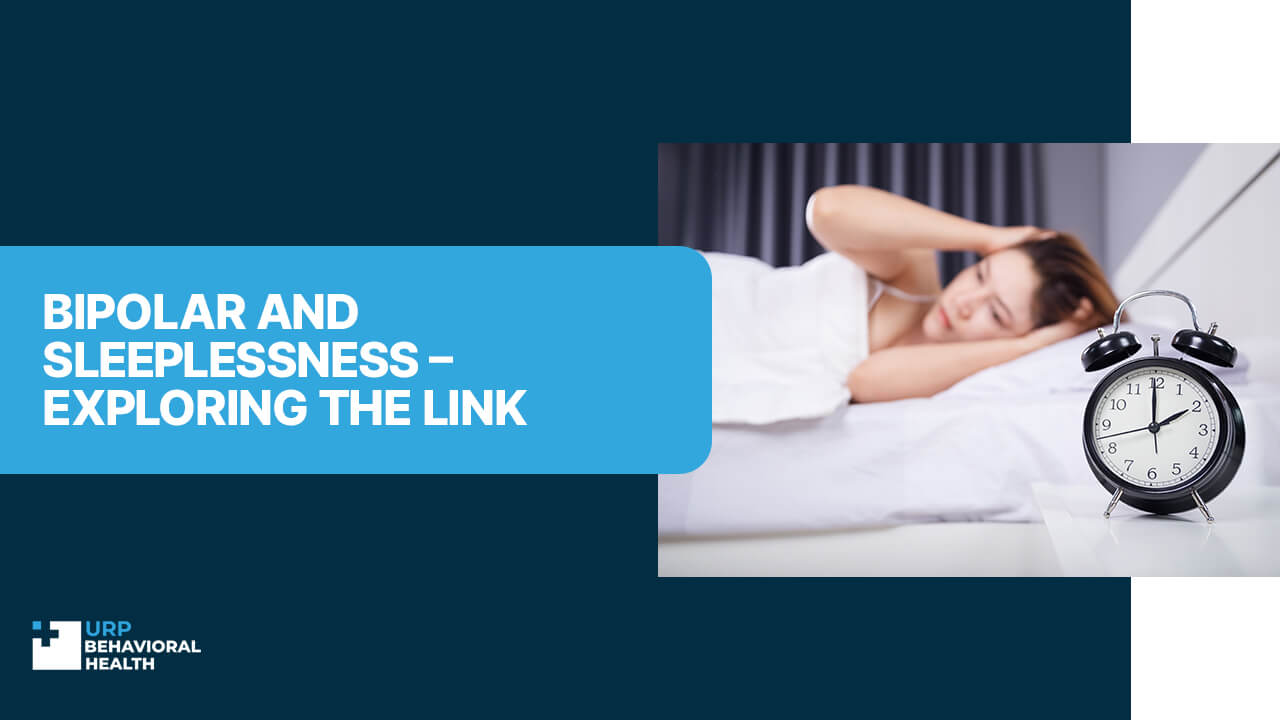
Bipolar and Sleeplessness – Exploring the Link
Bipolar disorder, marked by intense mood fluctuations, can greatly disrupt sleep patterns, often causing bipolar-related sleeplessness or irregular bipolar sleeping habits. Bipolar and sleeping difficulties often go hand in hand, as sleep disorders, their causes, and remedies become crucial in understanding how and why bipolar disorder affects sleep. Here we discuss the conditions that contribute to sleep problems and offer tips to improve sleep quality.
We’ll help you understand your options and guide you toward care.
Does Bipolar Disorder Affect Sleep?
Severe bipolar disorder syndrome often causes sleep disruptions, which can lead to sleep loss and other problems during and after a sleep deprivation. This disconnection could result in bipolar-related sleep problems and severe mood swings, in addition to individuals experiencing severe altered state of consciousness. Sleep effects can vary from challenging to deranged to waking up fully, resulting in poor sleep quality. While most episodes of manic mana result in decreased sleepiness, many depressive episodes may result in hypersomnia or insomnia, which can be a sign of depressive episodes. [1].
How Bipolar Disorder Affects Sleep
Sleep-related disorders frequently linked to bipolar disorder have a complex relationship with it. The increase in energy and racing thoughts during manic phases can cause bipolar sleeplessness due to the difficulty in calming the mind. Individuals may feel they require less sleep and can function with minimal rest. In contrast, depressive episodes often lead to bipolar sleeping issues, where individuals struggle to sleep despite feeling fatigued, experiencing hypersomnia without restorative rest. Commonly, depression and insomnia occur as a result of frequent night waking and relatively unrefreshing sleep.. [2].
Why is it Hard to Sleep with Bipolar Disorder?
Many individuals with bipolar disorder encounter challenges with managing sleep cycles. Bipolar and sleeping difficulties often arise due to mood swings and disrupted circadian rhythms. After manic episodes, high energy levels and an active mind reduce sleep cycles. Conversely, depressive episodes can bring unresolved feelings of hopelessness and anxiety, which hinder the ability to fall and stay asleep. Multiple aging factors, drug dependency, irregular sleep patterns, and lifestyle factors like alcohol consumption can all impact sleep difficulties, which can cause deep sleep and related issues. [3].
Reach out today and let us create a treatment plan designed around your needs.
Treatments
Bipolar disorder patients often seek medications to manage symptoms, including sleep problems, but this section emphasizes non-pharmacological treatments. Consulting with a doctor for individualized treatment advice is essential.
- Psychotherapy – CBT-I utilizes techniques to modify sleep habits, which are especially useful for individuals with bipolar disorder.
- Sleep Hygiene – Restorative measures such as providing a stable sleep pattern, avoiding caffeine, and restricting screen time can be useful in managing bipolar sleeping disorders. [4].
- Lifestyle Changes – Lifestyle adjustments, like consistent wake-up and sleep times, can significantly improve bipolar-related sleeplessness.
Get Better Sleep With Bipolar Disorder
Individuals with bipolar disorder frequently experience sleep problems. Creating a bedtime routine that signals relaxation can help manage bipolar and sleeping challenges. Reducing screen time and establishing a sleep-friendly environment with a peaceful and cool setting is also beneficial. [5].
Could Sleep Disorders Lead to Bipolar Disorder?
Sleep disturbances can be particularly severe for those with bipolar disorder, which can be worsened by bipolar symptoms. A sleep schedule that promotes tranquility and good sleep quality can lead to better sleep quality and facilitate adaptation of bipolar disorder and bipolar function. Sleep can be improved by decreasing screen time and adopting a cool, resting position, which is conducive to a more peaceful sleep and reduces sleep disturbances by reducing screen time and resting in a comfortable bed. [6].
Conclusion
A significant relationship exists between sleeplessness, sleep disturbances, and bipolar disorder. Managing bipolar sleeping issues with comprehensive treatment can improve well-being. Those with bipolar disorder and a history of sleep problems should consider seeking professional help to manage both conditions effectively.
Don’t wait - confidential help is available right now for you or your loved one.
Sources
- National Institute of Mental Health (NIMH). (2024). “Bipolar Disorder.” https://www.nimh.nih.gov/health/topics/bipolar-disorder
- American Psychiatric Association. (2024). “What Is Bipolar Disorder?” https://www.psychiatry.org/patients-families/bipolar-disorders/what-are-bipolar-disorders
- National Alliance on Mental Illness (NAMI). (2017). “Bipolar Disorder.” https://www.nami.org/About-Mental-Illness/Mental-Health-Conditions/Bipolar-Disorder
- Cerullo, M. A., & Strakowski, S. M. (2007). “The prevalence and significance of substance use disorders in bipolar type I and II disorder.” https://pubmed.ncbi.nlm.nih.gov/17908301/
- Bauer, M., & Whybrow, P. C. (2001). “Thyroid hormone, neural tissue, and mood modulation.” https://pubmed.ncbi.nlm.nih.gov/12587187/
- Miklowitz, D. J. (2002). “The Bipolar Disorder Survival Guide: What You and Your Family Need to Know.”
















